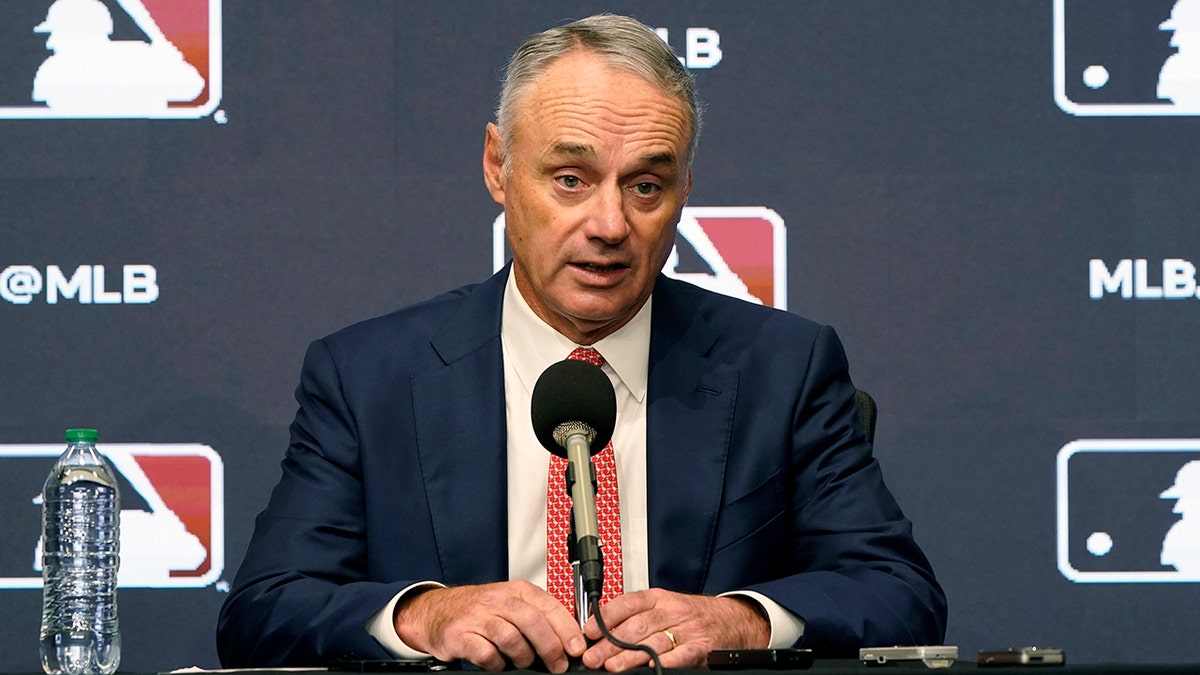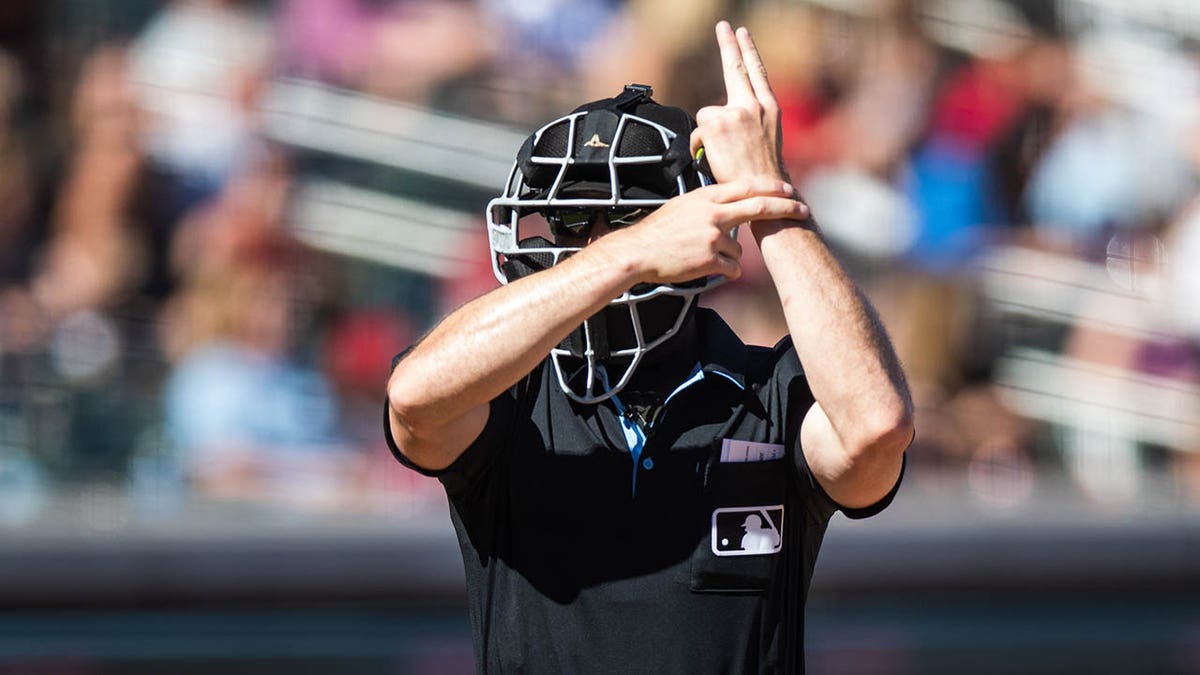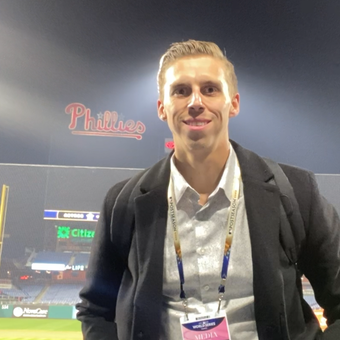Fox News Flash top sports headlines for March 28
Fox News Flash top sports headlines are here. Check out what's clicking on Foxnews.com.
The baseball world is two days away from the official beginning of a new era.
Pitch clocks, larger bases, and a banning of certain shifts will be brought into the regular season after experimentation in both the minor leagues and spring training.
The new rules are aimed to quicken the pace of play and have more action on the base paths, as walks, strikeouts and home runs have increased significantly over the years.
Fans didn't like it, and MLB Commissioner Rob Manfred took notice.
CLICK HERE FOR MORE SPORTS COVERAGE ON FOXNEWS.COM

Major League Baseball Commissioner Rob Manfred speaks during a news conference in Arlington, Texas, Dec. 2, 2021. (AP Photo/LM Otero, File)
When asked on "Good Morning America" why the changes came about, Manfred replied, "The short answer is the fans."
"Our research showed that the game had evolved and changed in a way that fans didn't like, and we decided it was time to intervene, to make sure we put the best form of baseball on the field," he said.
Of course, old-school baseball purists hate it all – even though baseball was never made to last over three hours like the game has over the last several years.
"Attention span of fans, we know, is limited, but the game, historically, was played in a window, two-and-a-half (hours) to 2:45, and in a lot of ways, we think we're restoring baseball to when it was the most popular," he said regarding baseball purist brushback.
Baseball has always been played without a clock, but now pitchers will have 15 seconds to deliver a pitch with the bases empty, and 20 seconds when there are men on base (batters have eight seconds to be alert for delivery).
But Manfred says despite the first timer in MLB history (there always was a rule, though hardly enforced, that pitchers must deliver a pitch in 12 seconds), the game is still the same.
"It's still a game with no clock in the sense that the end of the game isn't determined by any timing. The game ends naturally, just like it always has, and I see the pitch timer as sort of a small change to move things along."

Umpire Matt Brown signals for a pitch clock violation during the spring training game between the Diamondbacks and the Colorado Rockies at Salt River Fields at Talking Stick on March 12, 2023, in Scottsdale, Arizona. (John E. Moore III/Getty Images)
The pitch clock has done exactly what it has been intended – spring training games were 26 minutes shorter this year than in 2022. The average regular season nine-inning MLB game last year took three hours, three minutes. The previous year it was 3:10, the longest ever.
Sure, there have been some eyesores with the clock, but the commissioner noted that the "pitch timer" will have the biggest impact, but in a positive manner.
"Fans will notice that the game has a brisk pace to it, and the games will be shorter," he said.
At the end of the day, MLB had no choice but to make some tweaks, despite what the old-school crowd may say or want.
"I think that nothing stays in exactly the same form. And the fact of the matter is the game evolved naturally, and it's changed dramatically. And it got to the point where it was important to intervene and make sure that we are putting the best product on the field."

Commissioner Robert D. Manfred Jr. on the field for game two of the World Series between the Astros and the Phillies at Minute Maid Park on Oct. 29, 2022, in Houston, Texas. (Bob Levey/Getty Images)
CLICK HERE TO GET THE FOX NEWS APP
All 30 teams are slated to begin their season on Thursday – assuming no postponements. It is the first time that each MLB team will start their quest to a World Series on the same day since 1968.











































